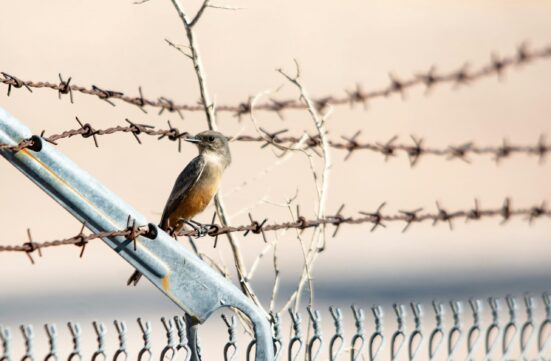Sense of Coherence Behind Barbed Wire: Young Asylum Seekers in a Closed Controlled Access Centre

Photo by: unsplash.com
Posted by: Chrysovalantis Papathanasiou
What helps young asylum seekers keep going when everyday life feels incomprehensible, unmanageable, and meaningless—especially within a highly adverse setting such as a Closed Controlled Access Centre (CCAC)? Drawing on the salutogenic model, a new qualitative study from Greece maps both the stressors young people face in the Samos CCAC and the resources that strengthen their Sense of Coherence (SOC) and resilience. The findings foreground Generalised Resistance Resources (GRRs) rooted in community, culture, and everyday coping.
The study involved nine young asylum seekers aged 18–24, all residing in the Samos CCAC. Data were generated through three mini focus groups organised by native language (Arabic, Farsi, and French), each facilitated by psychologists with interpretation and culturally attuned mediation provided by trained refugee community psychosocial workers (CPWs). Conducted between October and December 2021, focus-group data were thematically analysed using prompts grounded in the salutogenic framework.
The thematic analysis revealed three main themes: a) refugee experiences, b) psychological processes, and c) social support. Refugee experiences encompassed traumatic migration trajectories—exposure to war, violence, perilous journeys, and profound losses—followed by post-migration powerlessness marked by uncertainty, restricted freedom, discrimination, bureaucratic obstacles, and unmet basic needs. These conditions fuel persistent stress, sadness, and helplessness, can precipitate dysfunctional reactions (e.g., sleep disturbance, social isolation, substance use, self-harm), and increase vulnerability. Participants also described a diverse repertoire of coping strategies that actively restore manageability and meaning, which can be categorised into six main groups: regulating emotions, finding meaning, practicing self-sacrifice, reinforcing positive self-perceptions, seeking support and engaging in constructive distractions. Additionally, social support emerged through shared community values—solidarity, empathy, mutual respect, and encouragement—and a sense of belonging in which the community functions as a “surrogate family,” with culture and faith anchoring identity and meaning; taken together, these relational resources operate as GRRs that strengthen SOC.
In practice, services can act on four fronts: first, invest in peer-led, community-based Mental Health and Psychosocial Support (MHPSS) peer support-group facilitators and CPWs to cultivate trust, belonging, and mutual aid—core GRRs that strengthen SOC; second, deliver brief, scalable skills programmes (e.g., Problem Management Pus, PM+) that coach emotion regulation, problem-solving, and help-seeking, with content and delivery culturally and linguistically adapted; third, design everyday resilience into the environment by providing structured opportunities for language learning, sports, volunteering, and creative activities that build routine, skills, and positive distraction; and fourth, embed dignity- and rights-based operations that minimise unpredictability, ensure respectful interactions, and guarantee access to essentials—legal aid, healthcare, and hygiene—to counter feelings of powerlessness.
Reference
This blog post is based on Papathanasiou, C., Georgiou, K., Barbaresos, F., Kougioumtzi, A., & Stylianidis, S. (2025). Echoes of resilience: Young refugees’ experiences in a closed controlled access centre from a salutogenic perspective. International Journal of Migration, Health and Social Care. https://doi.org/10.1108/IJMHSC-02-2025-0014